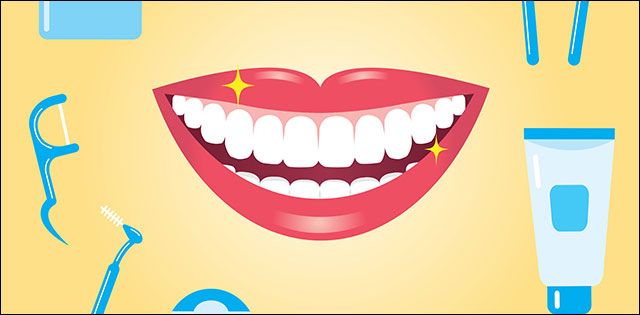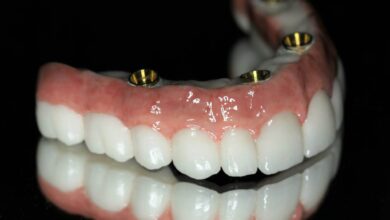The Science of Saliva: A Vital Component of Oral Health

Saliva is often an overlooked but essential component of oral health. Most people know that it helps with digestion, but few are aware of the complex and vital role it plays in protecting teeth, preventing disease, and maintaining overall oral hygiene. From fighting cavities to aiding speech and taste, saliva is more than just “mouth water”—it’s a critical fluid that keeps the mouth functioning and healthy.
The Composition and Functions of Saliva
Saliva is produced by three major salivary glands: the parotid, submandibular, and sublingual glands, along with hundreds of smaller minor glands scattered throughout the mouth. Each day, the average person produces between 0.5 and 1.5 litres of saliva, which is composed of approximately 99% water, but the remaining 1% contains crucial components such as electrolytes, enzymes, mucus, and antibacterial compounds. Together, these substances enable saliva to perform its wide range of functions.
Saliva’s primary role is to maintain moisture in the mouth, allowing for easy swallowing and facilitating speech. Beyond this, it plays a key role in protecting teeth from decay. One of the enzymes found in saliva, amylase, begins the digestion of carbohydrates, while others help break down proteins and fats. Saliva’s antibacterial properties protect the teeth and gums from harmful bacteria, and its slightly alkaline pH helps neutralise acids that can lead to enamel erosion. Additionally, saliva contains calcium and phosphate, which aid in the remineralisation of tooth enamel—a natural repair process that helps combat the early stages of tooth decay.
Dr. Sahil Patel, a leading cosmetic dentist in London at the Marylebone Smile Clinic, highlights the importance of saliva in oral health: “Saliva plays a crucial role in maintaining the health of your teeth and gums. It’s not just about keeping your mouth moist—it’s also about helping prevent cavities, repairing enamel, and even enhancing the overall aesthetic of your smile. For patients dealing with dry mouth or excessive saliva production, addressing these issues is essential to both oral health and confidence.”
However, when dental problems such as decay or gum disease progress too far, patients may turn to cosmetic treatments to restore their smile. For example, those seeking porcelain veneers in London often do so because their natural teeth have been damaged by disease or decay. Veneers can be a highly effective way to restore both the function and appearance of teeth after oral health issues have compromised them.
The Role of Saliva in Preventing Tooth Decay and Gum Disease
One of the most important functions of saliva is its role in preventing tooth decay and gum disease. The mouth contains countless bacteria, many of which are responsible for dental problems such as cavities and gingivitis. These bacteria thrive on the sugars and starches found in food, producing acids that attack tooth enamel and gums. Saliva helps to counteract this process in several ways.
First, it washes away food particles and debris that could otherwise feed harmful bacteria. By neutralising acids in the mouth, saliva reduces the likelihood of enamel erosion. Moreover, the calcium and phosphate ions in saliva contribute to the remineralisation of teeth, reinforcing their structure and making them more resistant to decay.
Gum health also benefits from saliva’s antibacterial properties. Saliva contains proteins that inhibit the growth of certain harmful bacteria, reducing the risk of infections that can lead to gum disease. In the absence of sufficient saliva, individuals are more prone to developing issues like periodontitis, which can cause tooth loss and affect the underlying bone structure of the jaw.
Saliva and Dry Mouth: Causes and Consequences
Xerostomia, commonly known as dry mouth, occurs when the production of saliva is insufficient. It is a common issue, especially among older adults and those who take medications that affect saliva production, such as antihistamines, antidepressants, and blood pressure medications. Dry mouth can also result from medical conditions such as Sjögren’s syndrome, diabetes, and cancer treatments like radiation therapy to the head and neck.
The consequences of dry mouth can be severe. Without adequate saliva, the mouth becomes more susceptible to tooth decay, gum disease, and oral infections such as thrush. People with dry mouth often experience difficulty swallowing, speaking, and tasting food. Furthermore, dry mouth can lead to halitosis (bad breath) due to the buildup of bacteria that saliva would typically wash away.
Managing dry mouth involves both increasing saliva production and addressing its consequences. Drinking plenty of water, using saliva substitutes, and chewing sugar-free gum can help stimulate saliva production. For those with chronic dry mouth, regular dental check-ups are essential to monitor for signs of decay or gum disease. In severe cases where teeth have been significantly damaged, cosmetic treatments such as veneers may be needed to restore the appearance of a healthy smile.
Cosmetic dentists in London are familiar with the challenges faced by patients with dry mouth, and they can offer solutions that not only improve oral health but also enhance the aesthetics of the smile. Patients dealing with xerostomia should seek early intervention to prevent long-term damage, noting, “For patients suffering from dry mouth, it’s critical to take action before more serious dental problems arise. Cosmetic treatments like veneers can help restore the appearance of teeth, but addressing the underlying issue is just as important.”
Excessive Saliva Production: Hypersalivation and Its Effects
While many people struggle with dry mouth, others experience the opposite problem—excessive saliva production, also known as hypersalivation. This condition can be caused by a variety of factors, including pregnancy, certain medications, neurological disorders, and gastrointestinal conditions such as acid reflux. Hypersalivation can also occur in response to dental issues, as the body produces more saliva to combat oral infections or irritations.
Excessive saliva production may not seem as problematic as dry mouth, but it can still lead to significant discomfort and oral health challenges. Individuals with hypersalivation may struggle with difficulty speaking, swallowing, or even controlling drooling. In severe cases, the condition can lead to social anxiety and reduced quality of life. Moreover, excess saliva can make wearing dental appliances such as braces or dentures uncomfortable, and it can increase the risk of developing oral infections due to the constant moisture in the mouth.
Addressing hypersalivation requires identifying and treating the underlying cause. In some cases, medications can help reduce saliva production, while in others, surgical interventions may be needed. Cosmetic dentistry can also play a role in treating some of the aesthetic consequences of excessive saliva, such as discoloured or damaged teeth caused by chronic acid reflux or the accumulation of plaque.
Saliva and Cosmetic Dentistry
Saliva plays an indirect but important role in cosmetic dentistry. Because it helps to protect and maintain the health of the teeth, sufficient saliva production is essential for achieving and maintaining the results of cosmetic dental treatments.
For individuals considering veneers or other cosmetic dental procedures, having a healthy balance of saliva is crucial for long-term success. Veneers, for instance, are designed to adhere to the surface of natural teeth, and maintaining the health of the underlying tooth structure is essential for the veneers to remain durable and effective. A lack of saliva could result in more frequent dental problems, requiring repairs or replacements for cosmetic work.
Patients seeking cosmetic treatments from a cosmetic dentist in London should first ensure that their oral health is stable, including proper saliva function. Those with issues related to dry mouth or hypersalivation should work with both their dentist and healthcare provider to manage these conditions before undergoing cosmetic procedures.
Future Research on Saliva and Oral Health
The science of saliva continues to evolve, with ongoing research uncovering new insights into its role in oral and overall health. Saliva has been found to contain valuable biomarkers that can help diagnose diseases, from oral cancer to systemic conditions like diabetes and HIV. As saliva testing becomes more advanced, it is likely that saliva will be used as a non-invasive diagnostic tool in dental offices and medical clinics alike.
Moreover, researchers are exploring new treatments for dry mouth, including gene therapies and medications that stimulate saliva production. These innovations could dramatically improve the quality of life for individuals suffering from xerostomia and other saliva-related conditions.
Cosmetic dentistry will also continue to benefit from advancements in our understanding of saliva. By improving the management of saliva-related issues, dentists can better prepare patients for procedures like veneers and ensure that cosmetic treatments last longer and look more natural.
Conclusion
Saliva is much more than just a fluid that keeps the mouth moist—it is a vital component of oral health that protects teeth, fights infection, and aids in digestion. For individuals dealing with conditions such as dry mouth or hypersalivation, managing saliva production is essential to preventing tooth decay, gum disease, and other oral health issues.
For those seeking cosmetic dental treatments in London, ensuring that saliva production is within a healthy range is key to achieving successful results. Whether patients are considering veneers or other aesthetic procedures, a well-functioning salivary system will support long-lasting, healthy outcomes. Leading cosmetic dentists, such as Dr. Sahil Patel, emphasise the importance of addressing saliva-related issues early to prevent long-term damage and maintain the aesthetic and functional health of the smile.
As science continues to uncover new insights into the role of saliva, it is clear that this simple yet complex fluid is essential to both oral health and cosmetic dentistry. By understanding the science of saliva and taking steps to ensure its proper function, individuals can maintain healthier teeth, prevent disease, and enjoy a more confident smile.





